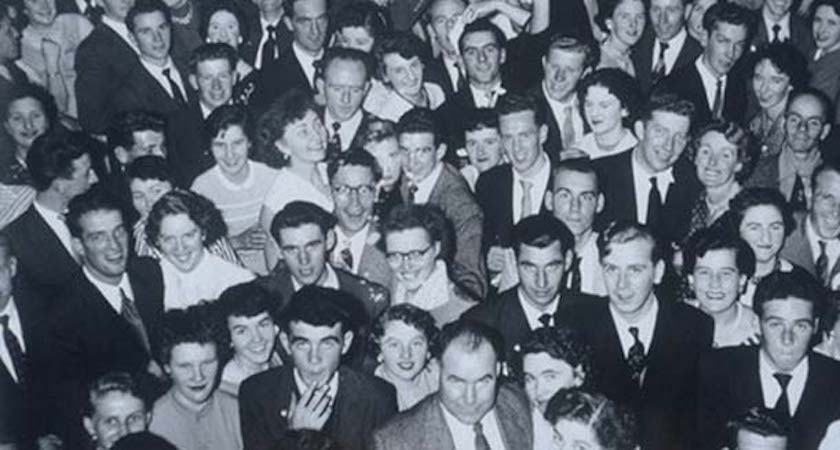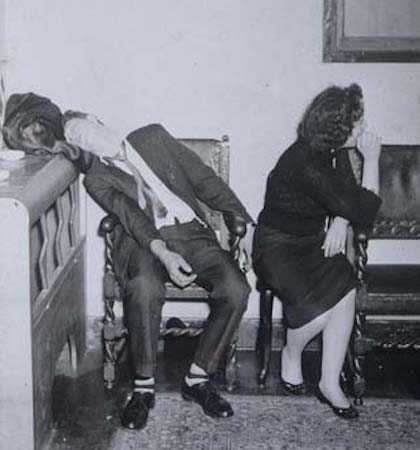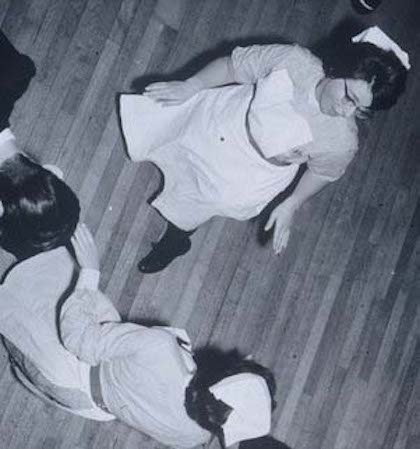WHEN Ralph McTell wrote the song, Its a Long, Long Way, From Clare To Here (‘here’ being London) in the late ‘60s, it was unimaginably further then than it would be for any Irish ‘digital native’ of today.
Back then a call home could necessitate standing in a public telephone booth, with a stack hard-earned of silver at the ready, frantically feeding coins into the pay-per-minute call box.
Snail mail letters were the default option then but, as McTell’s song tellingly relates, Me Ma would like a letter home, but I’m not into writin’, particularly since it was expected that ‘the letter’ would arrive with a substantial sum of cash, or else a Post Office Money Order, contained within.
McTell is an English folk singer but the song is set against the authentically gritty real-life experience of Irish male migrant labourers on 1960s London building sites.
Unlike earlier and more sentimental ballads referencing construction labour, such as The Mountains of Mourne, it could be argued that it is almost a work song of sorts.
According to the musician and collector Joe Byrne of Aghamore in East Mayo the all-time favourite of the Irish navvy, McAlpine’s Fusiliers, has the most unimpeachable labour credentials of all.
Adapted and copyrighted in the 1960s, by Dominic Behan, it originated with a third generation spailpin from the Mayo-Roscommon border.
Apparently MacAlpine's Fusiliers was written by one Martin Henry, of Rooskey near Doocastle in East Mayo, probably sometime in the late ‘Fifties.
Martin, like others in that part of Mayo, had for many years been a Spailpin or seasonal harvester in England and, again like many others, had gravitated towards construction work in search of better money (‘with the farmers, you paid no tax, but on the buildin’s, you were with your own’).
It was commonplace in such occupations for men to write rough verse about their world and many such songs are familiar to collectors.
One, which became almost as famous, is the stirring spailpin saga, The Rocky Road to Dublin – again, like McAlpine’s Fusiliers, often sung with great enthusiasm but with little understanding of its true meaning.
One line in particular supports Joe Byrne’s assertion:
'I stripped to the skin with the Darky Finn, way down on the Isle of Grain' .
The Darky Finn was a neighbour of Martin Henry’s who lived in Cloontia, near Doocastle, and his home still stands.
The Isle of Grain, as readers of The Men who Built Britain will know, witnessed the construction over almost a decade of an oil terminal, refinery, and power station between the late 'Fifties and early 'Sixties.
Of course, the authentic instruments amongst the rural Irish who predominated in construction at that time were fiddles, flutes, tin whistles and accordions – not the guitars, banjos, bodhrans and bouzoukis favoured by the ballad singers of the folk revival.
A scene from Philip Donnellan’s documentary, The Irishmen: An Impression of Exile (BBC, 1964) depicts an impromptu trad session in a building site canteen during construction of the M1 motorway.
Apart from the musicians, the site workers present all look either slightly embarrassed or, at best, indifferent.
Presumably this was the brainchild of Donnellan’s musical collaborator on the project, the Irish musician and composer Seamus Ennis, but it simply isn’t credible.
A rough rendition of McAlpine’s Fusiliers in a later pub scene, however, carries more conviction.
Many navvies might have preferred the Tulla Ceili Band to The Dubliners or other well-known balladeers, but nonetheless songs such as Crooked Jack, Cricklewood, The Rambler from Clare and Tunnel Tigers clearly resonated with them.
Although perhaps penned by writers little acquainted with the pick and shovel, they express appreciation for the toughness, tenacity, exuberance and stoicism of the Irish labourer on Britain’s twentieth century building sites.
They breathe life into the hard uncompromising facts and sometimes sad statistics of lives lived on the margins of an alien and often indifferent society.
Which why we sing them still...
Ultan Cowley is the author of The Men who built Britain: A History of the Irish Navvy, published in 2001. The historian will explore the legacy of the Irish navvies in Great Britain and alongside musician Joe Giltrap, who will perform some of their best known songs, on February 8 at EPIC The Irish Emigration Museum in Dublin.




